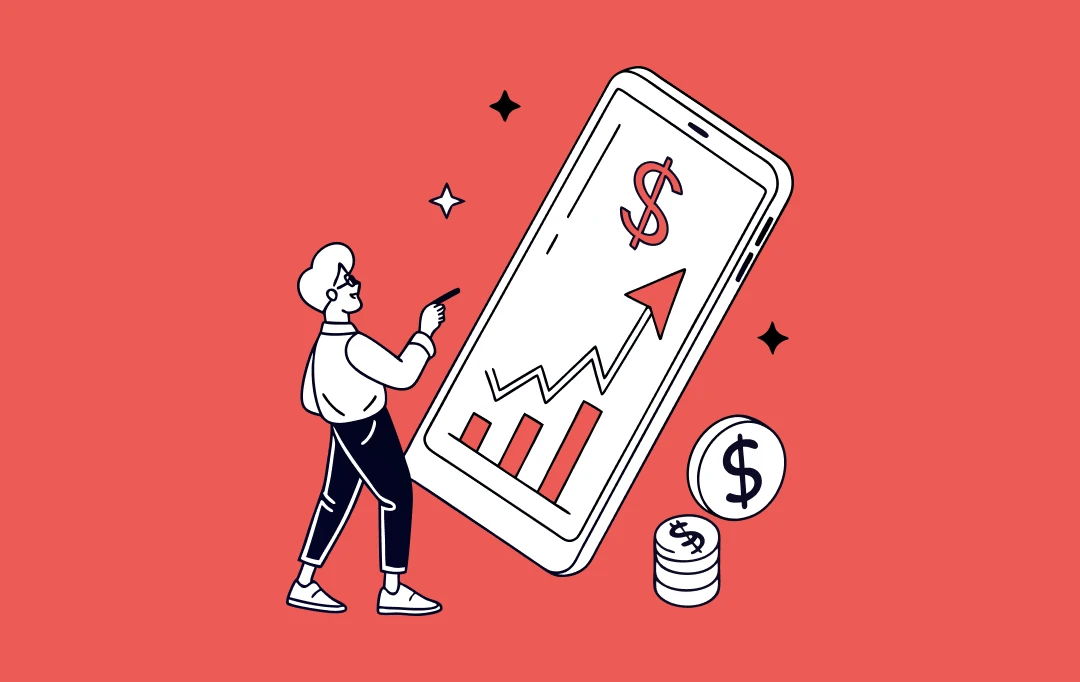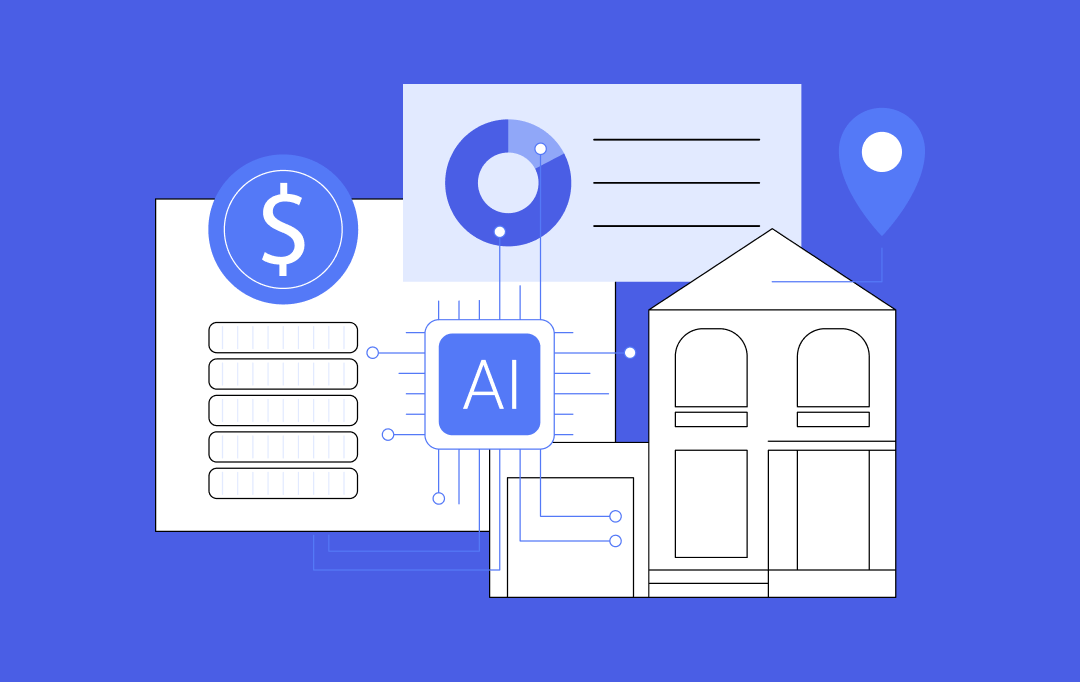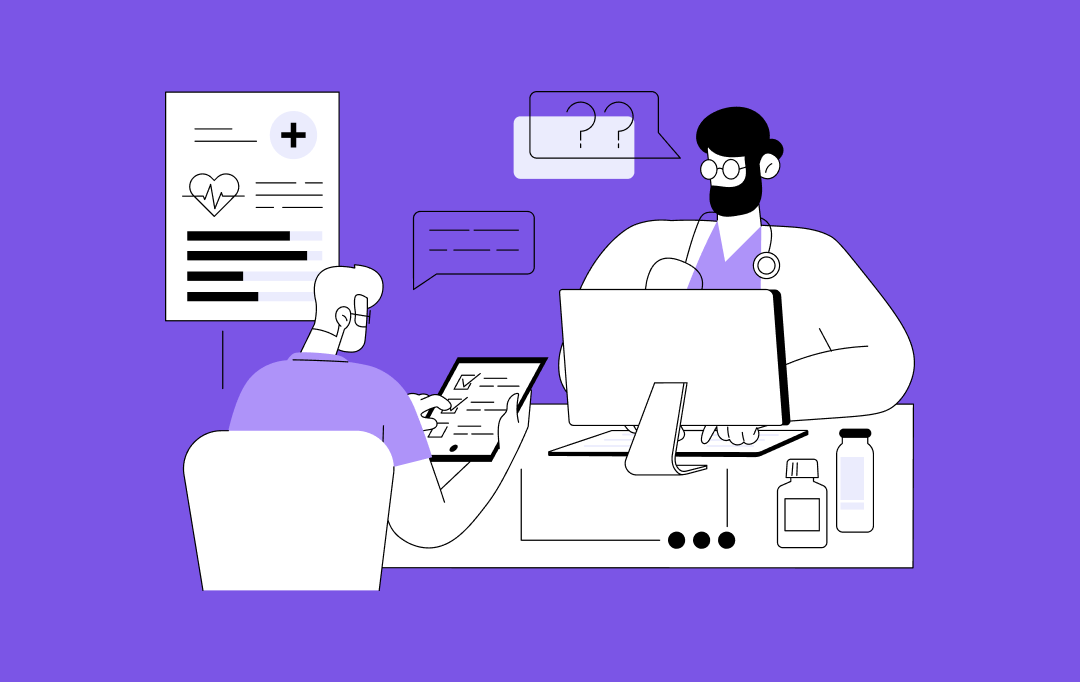- Top 10 Game-Changing Effects: How AI Is Reshaping HR
- Automated Resume Screening
- Predictive Analytics
- Chatbots for Recruitment
- Robotic Process Automation (RPA)
- AI-Based Employee Surveys
- Employee Health and Wellness
- AI-Based Learning Platforms
- Employee Performance Analysis
- Workforce Planning
- Employee Sentiment Analysis
- Challenges of Implementing AI in HR Management
- Real-world Illustrations: Revealing the Apex of HR Excellence Through Artificial Intelligence
- Leverage Appinventiv's AI Solutions for Business Enhancement
- FAQs
Employees are the foundation of every business, and the HR department plays a significant role in managing them, whether in recruitment, performance analysis, change management, or workforce planning.
According to Gartner, 76% of HR leaders express the belief that their organization risks lagging in organizational success compared to those adopting AI solutions, including generative AI, if not implemented within the next 12 to 24 months.
In the past few years, the HR department has struggled to attract and retain top talent, ensure compliance with laws, and measure HR effectiveness.
The emergence of AI in HR has exceptionally transformed how HR departments operate. AI is being used to automate many manual and time-consuming tasks that HR professionals have traditionally performed, such as screening resumes, scheduling interviews, and onboarding new employees.
AI for HR frees HR professionals to focus on more strategic work, such as developing talent management strategies, fostering employee engagement, and promoting diversity and inclusion in the workplace
As organizations increasingly embrace AI, the HR domain is evolving into a dynamic, tech-driven hub that maximizes human potential and fuels organizational success.
Let’s delve into the impact of AI in HR to discover the unique way of its implementation.
Top 10 Game-Changing Effects: How AI Is Reshaping HR
Artificial intelligence is widely used in the business world, making faster decisions, elevating operational efficiencies, and eliminating human error. In addition, leveraging AI in HR management can streamline processes, personalize the employee experience, and improve employee performance management. Let’s comprehend the other aspects of AI in human resources that are transforming the hiring landscape.

Automated Resume Screening
Traditional resume screening is a tedious process that demands a shift through large numbers of resumes within a restricted time. This creates unconscious bias and restricts HR professionals to other possibilities.
AI-enabled resume screening helps find the best candidates and enter the next round of the recruitment process.
With the assistance of AI and machine learning in HR, businesses can resume and extract valuable information appropriate to the hiring process, for example, qualifications, work experience, tech experience, etc.
Artificial intelligence in human resources helps in resume screening and primarily concentrates on three major elements: keywords, statistics, and grammar. Hiring managers can efficiently select the right talent for their business by setting up custom criteria.
Predictive Analytics
Predictive analytics is data evaluation using historical data to provide predictions about the future. Businesses leverage predictive analytics to discover employee turnover, absenteeism, and performance, which ultimately assist in better decision-making as well as training and development.
With predictive analytics, it’s possible to take a more strategic and proactive approach towards the organization’s growth. Hiring managers leverage predictive analytics to identify performance gaps leading to potential training programs.
Leveraging predictive analytics mitigates the risk by providing actionable points that optimistically impact the organization’s growth.
Chatbots for Recruitment
AI-powered recruitment chatbots have become prevalent as they are available 24/7, solving candidates’ queries in real time.
Career page chatbots enhance candidate engagement about the organization’s vision, mission, values, etc. Once the candidate is ready to apply for the job, interview scheduling bots enable them to select a convenient time for an interview.
Chatbots are highly advantageous in gathering information and interacting with candidates, enhancing accuracy and scalability.
Robotic Process Automation (RPA)
Robotic process automation automates repetitive tasks such as onboarding new employees, updating employees’ records, processing payroll, etc.
An RPA bot can offboard departing employees by revoking their access to company resources, terminating their benefits, and finalizing their payroll.
[Also Read: An Entrepreneur’s Guide to Custom Cloud Payroll Software Development]
RPA not only enhances operational efficiency but also reduces errors and ensures compliance with policies and regulations. The integration of RPA in HR processing represents a shift towards a more agile and digitally-driven HR function, allowing organizations to allocate resources more strategically and elevate the overall employee experience.
AI-Based Employee Surveys
AI for human resources allows recruiters to conduct surveys. Focusing on individual employee roles, engagement levels, and preferences, AI in HR management develops more targeted and customized survey questions, which leads to higher response rates.
Artificial intelligence in HR enables the collection and analysis of real-time feedback. This immediacy allows organizations to address concerns promptly, fostering a more dynamic and responsive work environment.

Employee Health and Wellness
Leveraging artificial intelligence for employees’ health and wellness is one of the significant approaches businesses take. AI algorithms can evaluate demographic data, health history, lifestyle habits, etc., in order to deliver customized wellness recommendations that demonstrate health concerns.
Virtual health coaching support, mental health support, and smart wearable integration encourage employees to engage in regular physical activity. This fosters a supportive and inclusive work environment that prioritizes employees’ well-being.
AI-Based Learning Platforms
Artificial intelligence provides significant support to HR departments by escalating workforce productivity and efficiency. AI-powered tool implementation in HR help curate personalized learning experiences and offer real-time feedback.
AI platforms can continuously monitor employee progress and adjust the difficulty of instructions accordingly. This ensures that employees are challenged appropriately, making the learning process more engaging and effective. As per the company’s requirements, AI-powered tools can evaluate employees’ skills and competencies and prioritize training initiatives.

Employee Performance Analysis
Employee performance analysis is one of the domains where AI provides a revolutionary impact. Using vast amounts of data, such as employee surveys, performance reviews, and productivity metrics, allows artificial intelligence to aid HR professionals in discovering a more comprehensive and data-driven comprehension of employee performance and efficiency.
AI-powered tools enable real-time monitoring of employees’ activities by facilitating comparative analysis and benchmarking indivisible performance against industry standards.
Workforce Planning
One of the most valuable aspects of HR practices is workforce planning, which demonstrates its effectiveness. Workforce planning is a crucial aspect of organizational strategy, ensuring that the right people with the right skills are in place to meet the organization’s current and future needs. The integration of artificial intelligence transforms workforce planning by introducing scenario modeling, a powerful tool for anticipating and preparing for potential challenges and opportunities.
Scenario modeling involves developing and analyzing hypothetical scenarios representing different possible futures for the organization. AI algorithms can evaluate data to simulate these scenarios, assisting HR professionals with an extensive understanding of how other events might impact the workforce.
Employee Sentiment Analysis
Artificial intelligence is beneficial in evaluating employee sentiment, delivering a nuanced understanding of the workforce’s feelings and attitudes. Through natural language processing (NLP) and sentiment analysis algorithms, AI interprets employee feedback from various sources, including surveys, social media, and communication platforms. This analysis goes beyond traditional metrics, capturing the emotional nuances in employee responses.
By deciphering sentiments, organizations can identify areas of satisfaction or discontent, allowing HR teams to proactively address concerns, enhance employee engagement, and cultivate a positive workplace culture. AI-driven sentiment analysis empowers organizations to create an environment where employees feel heard and valued.
Challenges of Implementing AI in HR Management
After exploring the benefits of AI in HR, let’s discover how businesses encounter various challenges related to artificial intelligence. Undoubtedly, AI in recruiting process plays a vital role in discovering the top talent for businesses, but it also raises a few concerns related to data privacy and security.
Implementing AI in HR technology invokes sensitive employee data, including personal information and performance records; hence, ensuring employee confidentiality and compliance with data protection regulations is paramount.
AI algorithms can amplify existing biases in the data they are trained on, leading to discriminatory outcomes in HR processes such as recruiting, promotion, and performance analysis. Since it is essential to cautiously audit AI algorithms for bias, we ensure data representation, and implement bias mitigation techniques to promote fairness and equal opportunities for all employees.
Real-world Illustrations: Revealing the Apex of HR Excellence Through Artificial Intelligence
AI and automation are dramatically reshaping the HR landscape, promising a future of personalized employee experiences and data-driven decision-making. At the forefront of technological innovation, prominent organizations utilize AI to elevate product demos, create groundbreaking solutions, and offer customized recommendations. Let’s comprehend!
Electrolux Group
One of the most famous home appliance manufacturers had encountered a recruitment crisis. The organization has strategically implemented a powerful AI-driven platform for hyper-personalized external career sites, talent CRM, and automated campaigns. Since the implementation, the company has experienced an 84% increase in application conversation rates and a 20% reduction in recruitment time by leveraging one-way interviews.
Workday
Workday unveiled AI features to streamline HR processes, including automatic contract comparison, personalized knowledge article creation, and generated statements of work. By leveraging existing data like skills and location, the organization experienced AI-powered job descriptions and met their expectation. Different artificial intelligence features aided organizations to enhance their efficiency, personalization, and user control within the HR landscape.
Leverage Appinventiv’s AI Solutions for Business Enhancement
The implementation of AI has holistically revolutionized the HR department by demonstrating the opportunities to select top talents and retain them for a longer period of time.
Artificial intelligence is a cutting-edge technology that empowers businesses through an expanded talent pool and predictive capabilities and boosts the overall company’s performance.
Leveraging artificial intelligence is a boon for businesses, enabling them to accomplish their business outcomes. One of the prominent organizations, JobGet, gained $52 million funding, making it no.1 recruitment app.
Our AI development services encompass a wide spectrum, from machine learning to predictive analytics, delivering exceptional personalized experiences, automating complex tasks, discovering a deeper understanding of user behavior, and more.
FAQs
Q. What is next on the horizon for AI in recruiting and hiring?
A. Artificial intelligence will be leveraged more innovatively to attract, evaluate, and onboard talent. A personalized candidate experience will be one of them, where candidates can receive real-time feedback during the hiring process.
Q. What are the benefits of AI in HR function?
A. AI benefits HR departments by enhancing efficiency, facilitating data-driven decision-making, and fostering a more strategic and proactive approach to workforce management.
Q. What is the importance of AI in the HR recruitment process?
A. AI in HR function facilitates screening, scheduling interviews, and following up emails by enabling recruiters to make informed decisions based on objective criteria.



How Much Does It Cost to Build an AI Trading App Like Moomoo?
Trading apps have undoubtedly solved the major pain point of the public - eliminating middlemen from investing their money, Which keeps them in fear that they might get cheated or lose their money. However, trading apps have facilitated users with the transparency to perform trading safely and swiftly. In the era of smartphones and AI,…

15 Explorative Use Cases of AI in Mortgage Lending
In an era where technological advancements are revolutionizing every sector, mortgage lending has been slow to embrace change. The industry has been bogged down by outdated processes, increasing operational costs, and regulatory pressures. However, with the introduction of AI in mortgage lending industry, a shift is occurring that promises to address these pain points while…

How to Develop AI Medical Transcription Software? Costs, Process, and Benefits
Developing accurate and efficient medical transcriptions manually has always been a painstaking process, fraught with many challenges. Manual transcription often leads to errors, misinterpretations, delayed patient care, and the high costs associated with hiring skilled professionals. As the volume of medical data grows, the pressure to maintain accuracy without compromising efficiency intensifies. It's time to…











